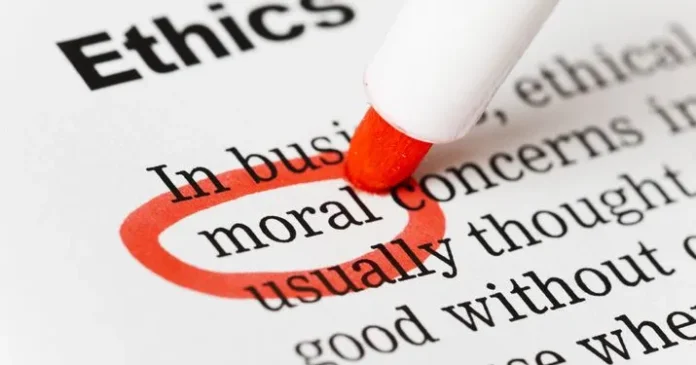August 16, 2025
In today’s digital world, social media often mixes remembrance, advocacy, and exploitation. The recent death of Saba Rasool, a 22-year-old Kashmiri MBBS student in Iran, has ignited a significant ethical discussion. Rasool gained viral attention earlier in 2025 during the Iran-Israel conflict when she was one of the first Kashmiri students evacuated from the country. She died on August 15, 2025, at Urmia University of Medical Sciences. Friends and family have accused the medical staff of negligence, citing a delayed ambulance response and poor hospital care. They are now urging Indian authorities to repatriate her body and to look into the circumstances surrounding her death. Amid this grief, her old interviews and videos from the evacuation period have resurfaced on social media. Users have shared them to reflect on life’s unpredictability or to call for justice. But is this behavior ethically and morally acceptable? The answer depends on intent, consent, and the balance between the public good and private dignity.
Ethical Considerations: Consent, Exploitation, and Public Interest
The main ethical concern is about consent and the risk of exploitation. Saba Rasool’s interviews during the Iran-Israel conflict were probably recorded with her permission at the time. She openly shared her experiences as a stranded student. Once content is in the public domain, especially on platforms like X (formerly Twitter) or YouTube, it often can be redistributed under fair use in many places. However, her death complicates matters. Ethical guidelines from organizations like the Society of Professional Journalists stress the importance of respecting the privacy and grief of the deceased’s family. These guidelines also caution against sensationalism and advocate for rebroadcasts that serve a real public purpose instead of simply going viral. On one hand, sharing these interviews can be justified if it highlights significant issues. Rasool’s story sheds light on the vulnerabilities faced by Indian students abroad, the dangers of studying in conflict zones, and the alleged medical failures in Iran that deserve public attention. Posts tagging Indian officials, such as the Ministry of External Affairs or those calling for investigations, turn these pieces from mere nostalgia into advocacy. This approach resembles ethical journalism: using past materials to contextualize a tragedy and raise awareness, much like how media outlets revisit footage in obituaries or investigative stories. On the other hand, this practice may violate ethics through exploitation. Without clear consent from her family, broadcasting her interviews could reduce her image to mere likes, views, or algorithm driven content. Some posts have captions like “Life is really unpredictable,” placed alongside her old videos. This could be seen as intrusive rather than respectful. It reflects broader criticisms of social media ethics, where platforms often reward sensational content, possibly causing distress to grieving families. In cultural contexts like Kashmir, where Islamic traditions promote dignified mourning, sharing this content might breach communal norms of respect. If the content is changed or misused for unrelated causes, it strays into unethical territory, violating principles of accuracy and sensitivity set out in codes like the International Federation of Journalists’ Declaration of Principles.
Moral Dimensions: Dignity, Empathy, and the Greater Good
On a moral level, the issues go deeper into human dignity and empathy. Philosophers like Immanuel Kant suggest that we must treat individuals as ends in themselves, not as means to an end. This means we should honor the deceased’s autonomy and legacy. Sharing Rasool’s old interviews might preserve her voice and allow her story to educate others. This aligns with a moral view that prioritizes the greater good, such as raising awareness about student safety or medical mistakes. This is especially relevant in cases of alleged injustice, similar to how videos of Mahsa Amini’s death in 2022 triggered global protests against Iran’s regime. However, from a virtue ethics standpoint, which emphasizes compassion and moderation, such actions could be morally questionable if they prioritize spectacle over solace. The moral responsibility to “do no harm” includes the bereaved. Rasool’s family, already suffering from the pain of awaiting her body’s return from Tehran, may find these shares as intrusive or hurtful reminders. In conflict-ridden areas like Kashmir, moral sensitivity requires us to acknowledge cultural taboos around death, where publicizing these personal moments might be seen as disrespectful or exploitative. Additionally, if these shares stem from mere curiosity instead of genuine tribute, they could undermine moral integrity, turning a young woman’s life into mere digital content. This issue isn’t unique to Rasool. Similar situations, such as the recirculation of interviews with Iranian activists or victims of state violence, show how social media can both empower and threaten moral discourse. In contexts related to Iran, where government propaganda and harassment are common, sharing old content could inadvertently put families at risk, as seen in threats against the relatives of activists.
A Balanced Reflection: Context Is Key
In the end, whether sharing Saba Rasool’s interviews is ethical or moral depends on the context and intent. If it is done sensitively to honor her memory, seek justice, or educate without sensationalism it can serve as a moral act of solidarity, amplifying a voice taken too soon. However, if it exploits grief for clicks or ignores family permission, it becomes morally and ethically wrong, continuing a cycle of digital insensitivity. As users, we should consider: Does this share respect her dignity, or does it undermine it? In Rasool’s case, with increasing calls for an investigation, thoughtful rebroadcasts could help ensure accountability. But both platforms and individuals should prioritize empathy, possibly by seeking family consent or responsible framing of content. Ultimately, true morality lies in viewing the deceased not merely as content but as people whose stories deserve respect not as fodder for clicks. May Saba Rasool rest in peace, and may her legacy lead to ethical reflection in our connected world.


